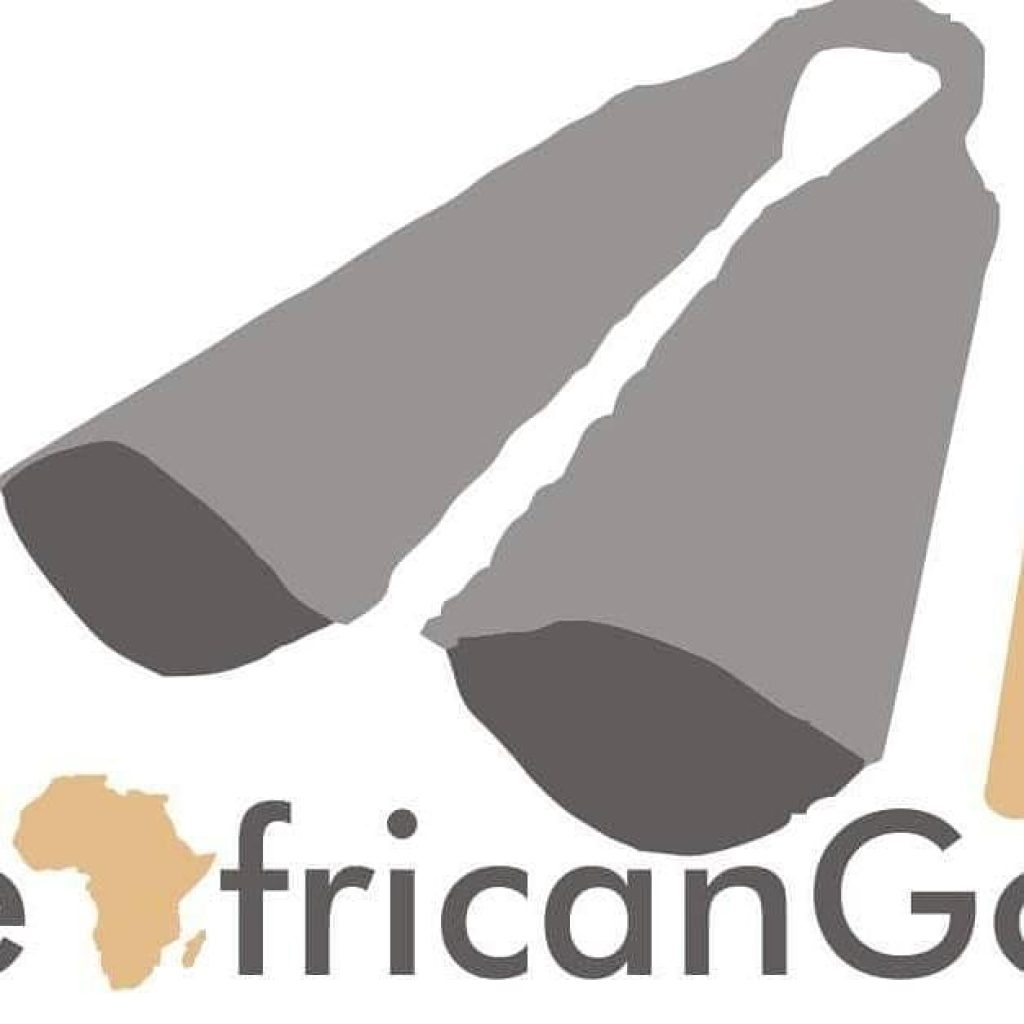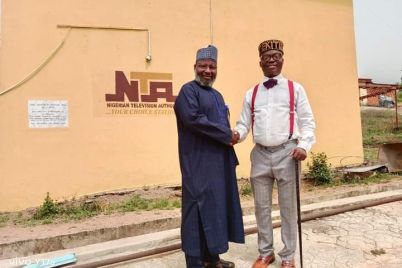
By Frank Meke.
Nigeria’s Gaza is a place of rage and peace of the grave yard. It’s a cemetery where the living moves about with fear of the unknown.
The Nigerian eastern region of Enugu, Anambra, Ebonyi, Abia, and Imo states are massively struggling to exit. Darkness pervades these areas, and there is palpable fear.
Yes, fear is the raging demon and has made both men and women pale at the sight of those elected to govern them. In these areas, once the heart of peace and tranquillity, the next bullet is from an unknown source.
In this Gaza, there are no bombs, rockets, and ambulances racing through destroyed walls and quarters, yet life is brutish and hopeless.
In these areas, daylight is nightfall. You must be careful not to arouse suspicion at the various security check points massed around the highways.
The heavily militarised environment speaks volume. You can not see any possible violence necessitating the seige, but the presence of armoured vehicles and Eagle eyed soldiers tells a story.
The boisterous and gregarious people shuffles around in silence. To crowd around is an offence, and to mind your thoughts and actions, the banner of wisdom.
Freedom is measured in grit of silence and not in expression of righteousness and justice. At the motor parks and markets, to gather in groaning against subsidy and desire for palliatives could be miscountrued for a punishable offence.
You must be gustful to play politics in Nigeria’s Gaza areas. I won’t touch politics. It’s glaring that opposition is opposed.
So, what is my story? I had arrived at Owerri last week en route Abia state. I had been on self exile for three years from Owerri, a place where every minute once counted in absolute conviction to peaceful coexistence and unity.

Owerri, indeed, was once the true heart land of the igbo nation, hospitable, inspiring, and beautiful. The people were once the most happiest, and visitor’s friendly.
Owerri was a meetings and conferences melting pot, and nightlife gyratory to highlife trumpets and bongo music, honey to those who seek to bask in sweaty romance and good life.
Suddenly, the city, the state named after Brownish Imo River, lost its soul to the bitter vicious political class. So for three years, the urge to stay away from my people reigned supreme.
I arrived through Sam Mbakwe airport on the evening flight. It is surest bet against the temptation to drive all the way from lagos. The roads with stories of kidnappings are no viable alternative, not for me.
I had various options clearly marked out. I went through every available intelligence with a speck. No stupid emotional or sentimental stuff, just hard work on realities available to me. It will amount to stupidity to drive into the eastern areas in the night with the highways heavily policed and erosion cutting off most portions of the highways as hot knives through roasted yam.
The Owerri airport looks bleak and begs for a touch of paintings. It used to be cheerful, a major critical socioeconomic gateway in and out of Imo and Abia states. The two states were once a geospace entity and contributed sweat and money to build the airport.
The politics of the owerri cargo airport is a story for another day but historically reflective of the deliberate neglect of the igbo nation in the national developmental agenda.
I was happy to here but I must be careful. Having picked up my luggage, getting a taxi to my village, which is about a 25-minute drive from owerri, was a well thought out travel itinerary.
The guy who drove me into town came highly recommended and knows his way around. He was out of the airport vicinity and arrived some ten minutes after to pick me up.
While I waited for his arrival, I noticed that everyone spoke in tongues, I mean, in hushed tones, and deliberately careful. This airport used to be one sure place to meet and shake hands with igbo millionaires.

In those days, you could see sleek cars and limousines driving in and out of the airport, either dropping or picking their expensive luminaries.
I didn’t see anything of such. No expressive bantering and show offs, no sirens, no long convoy of cars, not just any type of car(s) but of the most stupendously expensive. The once festive airport looks lonely, unattractive like an old lady.
The potters and car hire operators at the airport are the only faces of contacts and information, but one must still be discreet. Three years away from here, I changed lots of things but am fearfully hopeful in the land of Hope.
The drive-through to town was smooth. It was a Sunday, and the traffic was light. At Nekede junction, poles away is a military checkpoint manned by heavily armed soldiers. I didn’t see any possible act of overbearing and zealous searching or barkings of intimidation.
We got a suprise thumb up from the soldier directing traffic as we navigated through. I quickly sought my driver’s comments, and he told me some of the soldiers were civil and professional in discharge of their duties.
We drove through wheadrall Road after cutting down through fire service ( egbu Road junction) towards the city proper, connecting to Okigwe Road, heading to Ikeduru.
At the flyover bridge by orji, there was a traffic buildup due to police check points on both sides of the road. We crawled through, and you can trust our police, It was a greet and toll gate.
Everyone just grudgingly obeyed and cursed their their noses. It’s better to pay toll than be picked up by kidnappers. My driver explained off the ugly presence.
We ran into three of such checkpoints before turning off to my village. The driver filled me in about goings-on and advised me to stay off crowded environment.
The owerri okigwe road is a great sight to behold. Hope uzodinma, the governor of imo state, was on point here. This road was once a death trap, particularly around the Akabo area.
Kudos to the governor on this road, which connects okigwe, mbaesi, and gateway to other neighbouring states. My driver concurred but expressed anxieties about lack of all-inclusive governance.
He lamentated on strange killings in orlu and other places in the state and, at my prompting, advised tolerance in the face of any perceived provocation by the people, particularly young persons.
He alleged that there were more killings in the state than during the civil war, which wiped away millions of innocent people. True, there was a different kind of civil war here, and it’s glaring that it is rooted in bitter politics engendered by politicians.
Mondays are “sit” at home days , so I sat at home and cleaned the house. I also attended the meeting of umunna( gathering of kindreds) and watched proceedings after effusive greetings and hospitality from my people.
I was given the opportunity to address the gathering, and I preached peaceful coexistence. They understood my pleadings and assured me that peace must reign. I was worried about the young persons, some of them graduates with no jobs.
There are visible gaps between the people and their leaders. There’s no local government presence, and the people left to bear the brunt of rural growth and development.
The local farmers are cut off by unmotorable roads in getting their produce to the markets, effectively adding to the cost of farm produce. A ride on a bike is about five hundred naira, which is for a journey of less than 10 minutes.
No talks of subsidy palliatives here, no father Christmas, no free lunch, but the people are resilient and willing to survive against all odds, but fear of insecurity reigns.
On my way to Aba, the next day, and at Ngor Okpalla, the military checkpoint caused a long gridlock. I noticed that buses parked, and the passengers walked through to board again after the checkpoint. It was also normal to dismount from your bike and push it through the checkpoint.
It was a bit sunny that morning, and I wondered at the situation when it rains. I hired a vehicle for the trip, and the driver just drove through without asking me to step down before the checkpoint, a development that got him muzzled queries from the soldier manning the checkpoint.

I had to mind my business as he explained to the soldier why he gave me the privilege to stay put. The soldier was a very young officer and was not menacing. He stole a trained glance at me , my niece and another relation who volunteered to escort me to Aba and waved approval to move.
That highway was also heavily policed. There were gratters and pot holes all through and trust trailers to over turn to cargoes on the road, causing traffic difficulties and gridlocks.
At the owerrinta end of the highway, connecting to Aba, we had a few minutes of leg stretch out, an opportunity to hunt for local snacks. I saw an abbaitor with goat and cow meats on display, but no buyers.
I made approaches as a potential customer but the prices were not friendly, all blamed on the poor road networks across the country which directly impacts on logistics and cost of delivery of goods and services to the eastern region.
It was at ossisioma, Ariaria market, and Urratta junction that the notoriety and negligence of the Enugu, Aba, and Portharcourt highway was most prominent. This stretch with its mountainous oozing stench is hell on earth.
It’s so sad and painful sight to behold. This can’t be Nigeria , nor can it even be Gaza. The Nigerian civil war ended years back, but here, on this strategic highway connecting the northern fringes of the country to the east,
this road is no road or highway.
I must confess that no part of Nigeria deserves this neglect and abandonedment. Ariaria market should be rebuilt or cleaned up. The sight of refusing dumps is emetic and troubling. I should think that the neglect of that highway was targeted to ambush that iconic market and the creative ingenuity of the people.
It takes a very tough, resilient, and resourceful people to survive the deliberately packaged blockages as seen across the eastern states of Nigeria.
These types of infrastructural neglect fuel negative and destructive opinions. Buffeted by erosion sites and other security breaches, it is unbelievable what the people goes through in these areas with the media clearly scared to carry out independent assessment and reportage of roads infrastructural neglect by the federal Ministry of Works.
I had to do my return journey back to lagos by road just to also see things myself. From Assumpta junction , owerri to Benin, it was one police or military checkpoint at every hour drive.
At Ihiala, the military checkpoint was relaxed, and vehicular traffic was clearly assessed. Okija on Owerri onitsha highway trumpets an erosion menace, with a detour through Ozubulu town.
Charles soludo must wake up and arrest the growing decay of internal road networks in Anambra state, which are taking the heat off the decay and neglect of federal highways linking the state with other eastern states. Oba erosion site deserves serious federal government attention.
We drove through the second Niger bridge. it’s inspiring. It’s cuts off the notorious onitsha hold up and linked Benin Asaba highway. Great initiative and a plus to tourism traffic to the eastern region.
The drive on Benin Highway is another experience as a detour through an old road to Auchi, Adesogba, and Obajana, which adds to the groaning of travelling by road.

Though it was gainful to knowing Nigeria, it is disturbing to know that we don’t have motorable highways in the country. To say our road infrastructure is dead is simplistic. We don’t have roads, a sad narrative to which Minister of Works,
senator, ex governor David umahi must redefine.
Benin bypass is a dead end. This place is a Bermuda triangle as its capacity to swallow vehicles and their contents are indisputable. I pride as an intrepid reporter with years threading where saints fear, but my heart skipped in fear at the dangerous man eating holes on the Benin bypass.
Honestly, I am tempted to add Edo state as part of the geospace Gaza of eastern Nigeria. From poor roads’ infrastructure to insecurity, Nigeria is at war, a gorilla kind of war deserving a change in tactics and operation.
To win this war, the governments at all levels must be people centric. Win the people to developmental agendas, make their voices heard and considered, the war is over, and the military, highly overstretched, will return to the barracks. As for the police, they are a reflection of our collective failings as a people.

